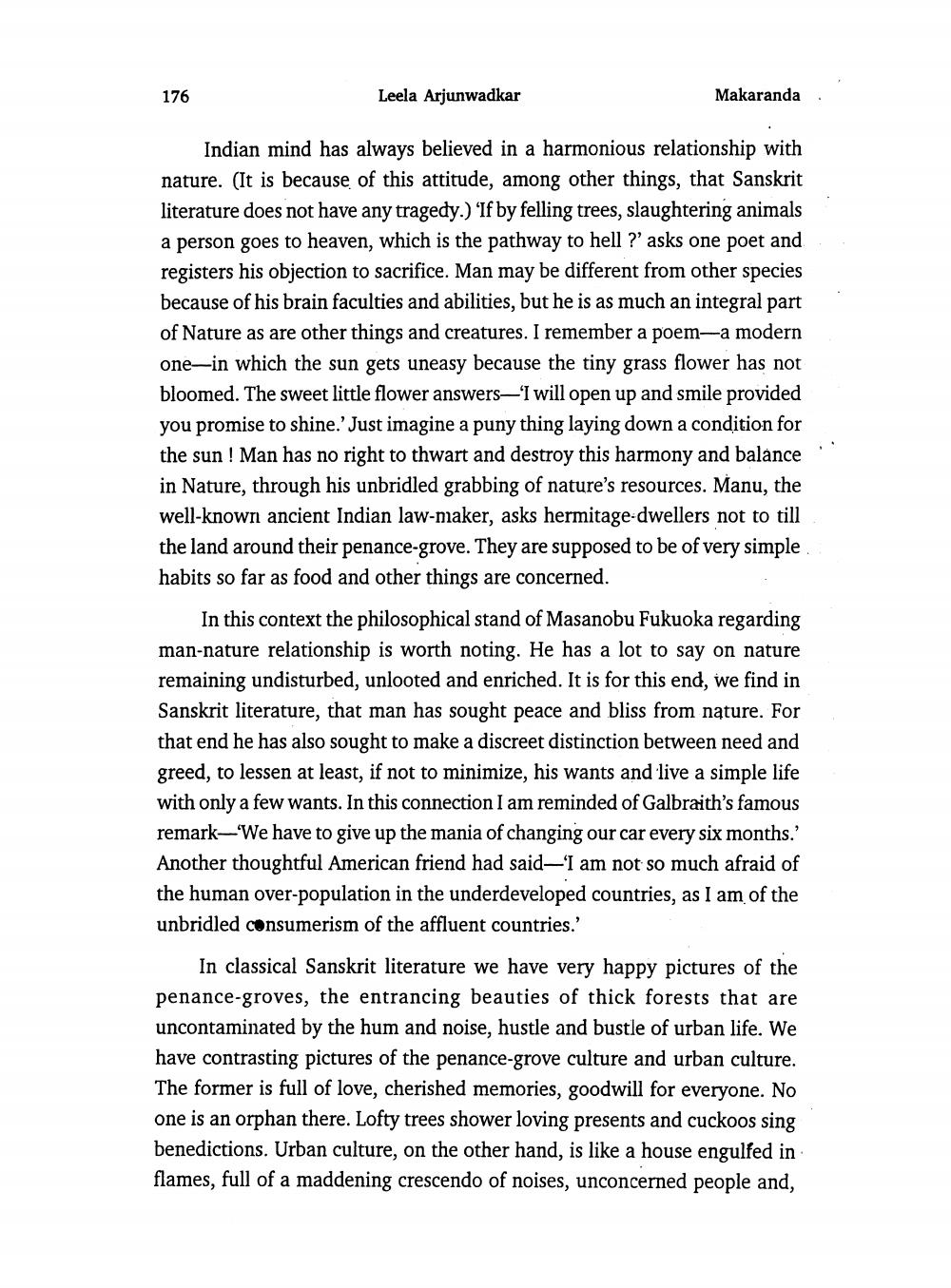________________
176
Leela Arjunwadkar
Makaranda
Indian mind has always believed in a harmonious relationship with nature. (It is because of this attitude, among other things, that Sanskrit literature does not have any tragedy.) 'If by felling trees, slaughtering animals a person goes to heaven, which is the pathway to hell ?' asks one poet and registers his objection to sacrifice. Man may be different from other species because of his brain faculties and abilities, but he is as much an integral part of Nature as are other things and creatures. I remember a poem-a modern one-in which the sun gets uneasy because the tiny grass flower has not bloomed. The sweet little flower answers—'I will open up and smile provided you promise to shine.' Just imagine a puny thing laying down a condition for the sun! Man has no right to thwart and destroy this harmony and balance in Nature, through his unbridled grabbing of nature's resources. Manu, the well-known ancient Indian law-maker, asks hermitage-dwellers not to till the land around their penance-grove. They are supposed to be of very simple habits so far as food and other things are concerned.
In this context the philosophical stand of Masanobu Fukuoka regarding man-nature relationship is worth noting. He has a lot to say on nature remaining undisturbed, unlooted and enriched. It is for this end, we find in Sanskrit literature, that man has sought peace and bliss from nature. For that end he has also sought to make a discreet distinction between need and greed, to lessen at least, if not to minimize, his wants and live a simple life with only a few wants. In this connection I am reminded of Galbraith's famous remark—'We have to give up the mania of changing our car every six months.' Another thoughtful American friend had said-'I am not so much afraid of the human over-population in the underdeveloped countries, as I am of the unbridled consumerism of the affluent countries.'
In classical Sanskrit literature we have very happy pictures of the penance-groves, the entrancing beauties of thick forests that are uncontaminated by the hum and noise, hustle and bustle of urban life. We have contrasting pictures of the penance-grove culture and urban culture. The former is full of love, cherished memories, goodwill for everyone. No one is an orphan there. Lofty trees shower loving presents and cuckoos sing benedictions. Urban culture, on the other hand, is like a house engulfed in flames, full of a maddening crescendo of noises, unconcerned people and,




